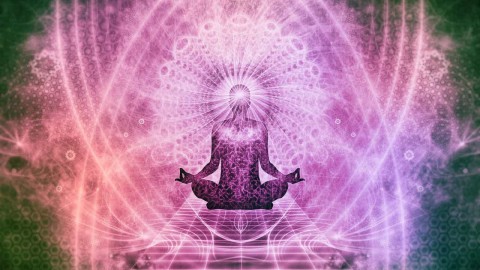Witnessing Self
As your witnessing self goes on increasing in integrity, expanding; it becomes stronger and stronger.
And the mind goes on becoming weaker and weaker: ninety percent observer and ten percent mind, ninety-nine percent observer and only one percent mind.
One hundred percent observer and the mind disappears, the road is empty; the screen of the mind becomes completely empty, nothing moves. There is only the observer.
This is the state J. Krishnamurti’s statement is pointing at. When there is nothing to observe, when there is only the observer left, then the observer itself becomes the observed – because there is nothing else to observe, what else to do? The knower simply knows itself. The seer sees himself.
The energy that was going towards objects, thoughts… there are no thoughts, no objects. The energy has no way to go anywhere; it simply becomes a light unto itself. There is nothing that it lights, it lights only itself – a flame surrounded by silence, surrounded by nothingness.
That is Krishnamurti’s way of saying it, that the observer becomes the observed. You can call it enlightenment, it is the same thing: the light simply lights itself, there is nothing else to fall upon. You have dissolved the mind. You are alone, fully alert and aware.
Krishnamurti is using a phrase of his own. He was a little fussy about it… not to use anybody else’s phrase, anybody else’s word – not to use anything that has been used by other masters.
You can change only the expression, you cannot change the experience. The experience is eternal. It makes no difference whether somebody calls it enlightenment, somebody calls it nirvana, somebody calls it samadhi, somebody calls it something else. You can give it your own name but remember, the experience should not be changed by your words.
For example, Patanjali’s word is the most important and the most ancient: samadhi. In Sanskrit, sickness is called vyadhi, and to go beyond all sickness is called samadhi. It has a beauty – going beyond all sickness; attaining wholeness, perfection. It has a beauty and a meaning.
Gautam Buddha used the word nirvana… because he was trying to make an effort twenty-five centuries after Patanjali. In these twenty-five centuries Patanjali had been misused. The people who were trying to reach samadhi made it some kind of ego trip. The word ‘samadhi’ is very positive – beyond all illness, wholeness. There is a loophole in it: it can give you an idea that “I will become perfect, beyond all limitations, all sicknesses. I will become whole.” But the danger is that this “I” may be your ego – most probably it will be, because your mind is still there.
The samadhi is true when the mind is gone. Then you can say, “I have gone beyond sickness” because the ego was also a sickness – in fact, the greatest sickness that man suffers from. Now your “I” does not mean ego. It simply means your individuality, not your personality. It simply means the universal in you, just the dewdrop which contains the ocean. The emphasis has changed completely. It is not the dewdrop that is claiming; it is the ocean that is proclaiming.
Tags: Become An Observer Mind Process Tao Is One The Observer Is The Observed Wakeful Intelligence Witnessing Self










